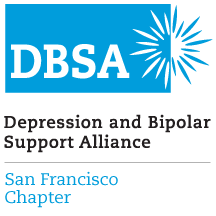>
Learn More
Mental health includes emotional, psychological, and social well-being. It affects how we think, feel, and act. Understand what it is and how to help.

What is Mental Health?
According to MentalHealth.gov, Mental Health includes our emotional, psychological and social well-being. It affects how we think, feel and act. It also helps determine how we handle stress, relate to others and make choices. Mental health is important at every stages of life, from childhood and adolescence through adulthood.
Over the course of your life, if you experience mental health problems, your thinking, mood and behavior could be affected. Many factors can cause mental and emotional distress.
The concept of a ‘broken’ brain/chemical imbalance is not supported by current scientific evidence. Our genes turn on and off in cells, and our brain changes constantly via neuroplasticity.
When faced with adverse experiences, our distress -however painful- is in fact rational and sane.
You're not crazy to feel so distressed. You're not broken. You're not defective. It is not a sign that something is wrong with you. It is a sign that your needs aren't being met, and you need to find ways to fulfill those needs.
Your Dis-ease Makes Sense
Our mental health is determined by our protective factors (such as supportive relationships) as well as risk factors (adverse life experiences) including:
-
Recent changes like: losing a job, going through a breakup, moving, ...
-
Adverse childhood experiences, abuse, trauma, cold parents, loneliness, grief
-
Disconnection from other people, meaningful work, status, ...
-
The standards of our culture (materialism vs. human values)
-
Disconnection from a hopeful and secure future (livable wages, ...)
-
Disconnection from nature (we were animals for millions of years)
-
"Like bees evolved to live in a hive, humans evolved to live in a tribe. We're the first humans ever to disband our tribes. And it's making us feel awful." So, it makes sense that the solution may be in building connection with others.
How to Get Better?
Know thyself, identify what happened to you, and how to get your needs met.
-
The question is not "what's wrong with you" but "what happened to you?"
-
What has happened in your life?
-
What happened in your childhood?
-
What happened to you in the last year that has been a major trigger?
-
What support systems do you have in your life?
-
Do you have friends?
-
Do you have a family? Do you have a supportive family?
-
How is your marriage?
-
How are your children? What is happening to them?
-
How is your job? Are you fulfilled at work?
Dis-ease may be a sign that some of your needs aren't being met, and you need to find ways to fulfill those needs. And there is help. Reach out to professionals, friends, and peers like you, join a support group.
People with mental health problems can get better and many recover completely!
Early Warning Signs
Not sure if you or someone you know is living with mental health problems? Experiencing one or more of the following feelings or behaviors can be an early warning sign of a problem:
Eating or sleeping too much or too little; Pulling away from people and usual activities; Having low or no energy; Feeling numb or like nothing matters; Having unexplained aches and pains; Feeling helpless or hopeless; Smoking, drinking, or using drugs more than usual and others.

Positive mental health allows people to:
-
Realize their full potential
-
Cope with the stresses of life
-
Work productively
-
Make meaningful contributions to their communities
Ways to maintain positive mental health include:
-
Getting professional help if you need it
-
Getting physically active and eating well
-
Getting enough sleep
-
Connecting with others and giving back
-
Doing things you enjoy everyday
“I found that with depression, one of the most important things you can realize is that you’re not alone. You’re not the first to go through it, you’re not gonna be the last to go through it.
— Dwayne “The Rock” Johnson”
Understanding Depression
Most people feel sad or depressed at times. It’s a normal reaction to loss or life's challenges. But when intense sadness - including feeling helpless, hopeless, and worthless - lasts for many days to weeks and keeps you from living your life, it may be something more than sadness. You could have clinical depression, which is a symptom of a real need and can be resolved. We've been there, we can help, join a support group.


What Does It Mean to Have Bipolar?
Around 45 million people worldwide are affected by bipolar disorder (formerly known as manic depression). People with bipolar experience both episodes of severe depression (low energy, hopelessness) and episodes of either hypomania (bipolar II) or mania (bipolar I) - huge energy, a reduced need for sleep, impulsivity and reduced inhibitions, taking risks. Talking to peers can be a great help to figure out how you can manage your mental health. We've been there, we can help, join a support group.
